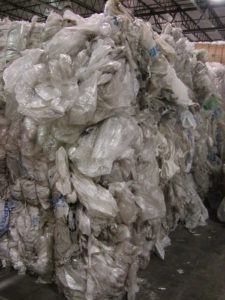To the average consumer, plummeting oil prices are a cause for celebration. The cheaper the oil, the less it costs to fill your gas tank and heat your home. But what consumers don’t typically realize is that oil prices directly affect the cost of plastic, the environmental value of recycling, and even local jobs. Because plastics are made from the byproducts of oil, the cost of recycling or producing new plastic hinges on the price of oil. As oil prices drop, recyclers suffer. As they go up, so do recyclers’ profits — but with a caveat.
Low Oil Prices: Bad for Business
Dropping oil prices have a domino effect on recyclers. When cheap oil floods the market, plastic producers can make virgin plastic at a low price. As a result, it’s cheaper for manufacturers to buy virgin plastic than to pay for recycled plastic.
Meanwhile, recycling companies still have to bear the costs of sorting and processing recycled plastic, so slashing prices to compete with the plastic producers isn’t an option. Recyclers may have to cut jobs to stay afloat. There’s also the question of what happens to all that unsold recycled plastic. If companies can’t find customers willing to pay for it, all that material may end up in a landfill, defeating the purpose of recycling entirely.
Finally, a glut of cheap oil may affect the market for recycled paper and metal, too. Low oil prices tend to drag down the prices for other commodities, in part because they help strengthen the value of the American dollar and make it less appealing for international customers to purchase recycled materials from an American recycling company.
High Oil Prices: A Mixed Bag
Rising oil prices hit consumers hard at the gas pump, but they may benefit a recycler’s bottom line. As oil prices go up, so does the price of virgin plastic. Buying recycled plastic becomes the more attractive option for manufacturers. Higher oil prices also tend to raise prices for scrap metal.
It’s not all good news, though. Higher oil prices can also hurt recyclers by driving up operational costs. It takes a great deal of oil to transport materials and run processing equipment, so rising prices may put a dent in the profits generated by a robust market for recycled plastic.
Furthermore, the manufacturers who buy recycled materials also struggle to operate when energy costs are high. Selling recycled plastic at a high price doesn’t do much good when the customers who need it can’t afford to keep the lights on.
At Miller Recycling, we watch oil prices carefully so we’re always ready for what’s next. How can our services address your recycling needs? Contact us today to find out.

